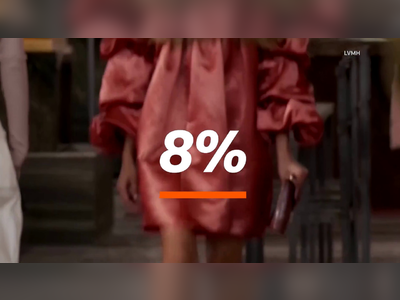
Albanian Criminal Networks Infiltrate Vigo Port for Cocaine Trafficking
The Galician harbor becomes a hotspot for cocaine smuggling into Europe as authorities intensify vigilance.
The port city of Vigo in Galicia, Spain, has emerged as a significant node in the cocaine trafficking routes to Europe, with notable involvement of Albanian criminal organizations.
In a dramatic escalation, Spanish authorities have seized nearly 10 tonnes of cocaine within the past year, indicating the scale of the operations that have placed the port under the watchful eyes of the National Police's Drug and Organized Crime Unit (Udyco) and the Customs Surveillance Service.
A recent bust intercepted over 1,000 kilograms of cocaine concealed within shipments of food products, leading to the arrests of nine individuals—six Albanians and three Belgians—believed to be responsible for the reception and distribution of the drugs.
The seized cocaine has an estimated street value of €50 million.
The criminal groups operating out of Vigo are linked to the infamous Balkan Clan, a formidable network allegedly responsible for more than half of the cocaine entering Europe.
Despite significant attempts to dismantle these operations, the network remains active.
Intelligence suggests that the rise in illicit activity at the Vigo port coincides with the establishment of a new commercial shipping route operated by the German logistics company Hapag-Lloyd, which began in April of last year.
This route, transporting fruit and frozen fish from South America, is now being exploited by traffickers seeking to channel cocaine into European markets.
Key ports along this route include Buenaventura in Colombia, Paita in Peru, multiple ports in Ecuador such as Posorja and Guayaquil, and others in Panama, Costa Rica, and Cartagena in Colombia.
The route, which services other European ports like Málaga, Valencia, Barcelona, and several in Italy, is also used for legitimate commerce.
The recent operation spotlighted the use of the vessel Cape Citius, chartered under a Cypriot flag and involving approximately 300 cargo handling movements per trip.
The operation extended from portside intelligence and collaboration with international agencies, trailing the shipment from its Guayaquil origin.
The enforced policing actions culminated in a raid on individuals linked to the drugs in a Vigo shopping center.
Legal proceedings have commenced with the suspects remanded in custody under accusations of being part of a criminal organization dedicated to drug importation across European docks.
The judicial probe is ongoing, with a veil of secrecy surrounding potential further arrests.
The drug shipments' concealed methods, such as the use of the ‘blind hook’ technique, exemplify the elaborate concealment strategies traffickers employ.
This involves surreptitiously loading the cocaine amongst legitimate goods, unbeknownst to legitimate cargo handlers.
Spain's sub-delegate of the Government in Pontevedra, Abel Losada, has affirmed that investigations aim to verify any links between the intercepted load and previous cocaine seizures in Vigo.
He referenced a prior seizure where Ecuadorian authorities confiscated over 1,200 kilograms of cocaine destined for Vigo, hidden amidst a shipment of canned tuna.
Further inspecting later shipments, authorities have seized another 500 kilograms found on the Izmit Express, another vessel servicing the new route, and 23 kilograms previously discovered by a ship's captain during a passage from Cartagena de Indias.
In a separate extraordinary operation, Spanish police intercepted 7,5 tonnes of cocaine, dubbed one of the country's largest.
This load was traced back to Guayaquil, believed to be orchestrated by the Albanian mafia controlling significant narcotics channels.
This sophisticated trafficking endeavor leveraged legitimate trade channels, embroiling established Galician business owners like Juan Bautista Suárez Pérez of Mar Azzurro, SL, in accusations of complicity due to his firm's high volume of frozen fish container shipments.
Arrested on arrival from a business trip in Mexico, Suárez Pérez denies allegations, asserting his role as an unknowing intermediary caught in the crossfire between legitimate commerce and illicit operations.
Since 2008, Mar Azzurro has been a stable supplier in the global seafood market, dealing in real estate alongside seafood commerce.
As legal proceedings unfold, the case underscores the complex interaction between global trade routes and narcotic networks, challenging authorities to refine strategies in combating transnational organized crime.
In a dramatic escalation, Spanish authorities have seized nearly 10 tonnes of cocaine within the past year, indicating the scale of the operations that have placed the port under the watchful eyes of the National Police's Drug and Organized Crime Unit (Udyco) and the Customs Surveillance Service.
A recent bust intercepted over 1,000 kilograms of cocaine concealed within shipments of food products, leading to the arrests of nine individuals—six Albanians and three Belgians—believed to be responsible for the reception and distribution of the drugs.
The seized cocaine has an estimated street value of €50 million.
The criminal groups operating out of Vigo are linked to the infamous Balkan Clan, a formidable network allegedly responsible for more than half of the cocaine entering Europe.
Despite significant attempts to dismantle these operations, the network remains active.
Intelligence suggests that the rise in illicit activity at the Vigo port coincides with the establishment of a new commercial shipping route operated by the German logistics company Hapag-Lloyd, which began in April of last year.
This route, transporting fruit and frozen fish from South America, is now being exploited by traffickers seeking to channel cocaine into European markets.
Key ports along this route include Buenaventura in Colombia, Paita in Peru, multiple ports in Ecuador such as Posorja and Guayaquil, and others in Panama, Costa Rica, and Cartagena in Colombia.
The route, which services other European ports like Málaga, Valencia, Barcelona, and several in Italy, is also used for legitimate commerce.
The recent operation spotlighted the use of the vessel Cape Citius, chartered under a Cypriot flag and involving approximately 300 cargo handling movements per trip.
The operation extended from portside intelligence and collaboration with international agencies, trailing the shipment from its Guayaquil origin.
The enforced policing actions culminated in a raid on individuals linked to the drugs in a Vigo shopping center.
Legal proceedings have commenced with the suspects remanded in custody under accusations of being part of a criminal organization dedicated to drug importation across European docks.
The judicial probe is ongoing, with a veil of secrecy surrounding potential further arrests.
The drug shipments' concealed methods, such as the use of the ‘blind hook’ technique, exemplify the elaborate concealment strategies traffickers employ.
This involves surreptitiously loading the cocaine amongst legitimate goods, unbeknownst to legitimate cargo handlers.
Spain's sub-delegate of the Government in Pontevedra, Abel Losada, has affirmed that investigations aim to verify any links between the intercepted load and previous cocaine seizures in Vigo.
He referenced a prior seizure where Ecuadorian authorities confiscated over 1,200 kilograms of cocaine destined for Vigo, hidden amidst a shipment of canned tuna.
Further inspecting later shipments, authorities have seized another 500 kilograms found on the Izmit Express, another vessel servicing the new route, and 23 kilograms previously discovered by a ship's captain during a passage from Cartagena de Indias.
In a separate extraordinary operation, Spanish police intercepted 7,5 tonnes of cocaine, dubbed one of the country's largest.
This load was traced back to Guayaquil, believed to be orchestrated by the Albanian mafia controlling significant narcotics channels.
This sophisticated trafficking endeavor leveraged legitimate trade channels, embroiling established Galician business owners like Juan Bautista Suárez Pérez of Mar Azzurro, SL, in accusations of complicity due to his firm's high volume of frozen fish container shipments.
Arrested on arrival from a business trip in Mexico, Suárez Pérez denies allegations, asserting his role as an unknowing intermediary caught in the crossfire between legitimate commerce and illicit operations.
Since 2008, Mar Azzurro has been a stable supplier in the global seafood market, dealing in real estate alongside seafood commerce.
As legal proceedings unfold, the case underscores the complex interaction between global trade routes and narcotic networks, challenging authorities to refine strategies in combating transnational organized crime.
Translation:
Translated by AI
AI Disclaimer: An advanced artificial intelligence (AI) system generated the content of this page on its own. This innovative technology conducts extensive research from a variety of reliable sources, performs rigorous fact-checking and verification, cleans up and balances biased or manipulated content, and presents a minimal factual summary that is just enough yet essential for you to function as an informed and educated citizen. Please keep in mind, however, that this system is an evolving technology, and as a result, the article may contain accidental inaccuracies or errors. We urge you to help us improve our site by reporting any inaccuracies you find using the "Contact Us" link at the bottom of this page. Your helpful feedback helps us improve our system and deliver more precise content. When you find an article of interest here, please look for the full and extensive coverage of this topic in traditional news sources, as they are written by professional journalists that we try to support, not replace. We appreciate your understanding and assistance.











